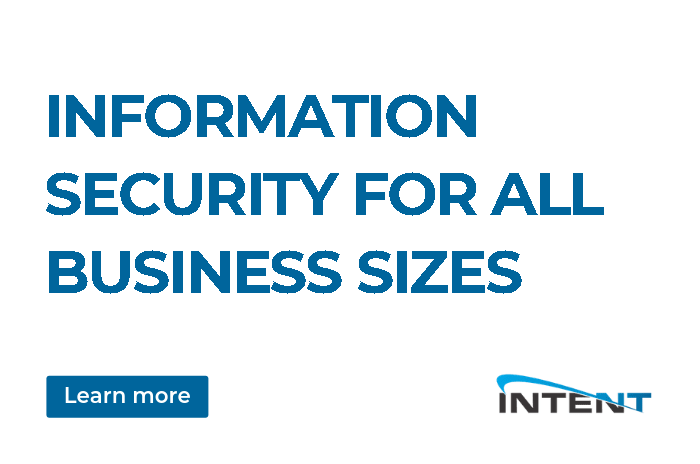Why is Information Security important for all business sizes?

When a major company experiences a data breach, it’s all over the news. It makes sense; these big companies often have access to sensitive data for millions of people, and a data breach makes them all potential victims of identity theft. Regardless of its size, your company is at risk. If you’re dealing with sensitive data (Intellectual Property (IP), Customer data, PCI, PII, etc.), it’s important to take measures to secure it properly—for the safety of your customers and for your own liability.
In mid-2017, a New York Times op-ed stated that intellectual property theft was costing U.S. companies $600 billion annually.
This theft ranged from counterfeiting American fashion designs, to pirating movies and video games, infringing patents and stealing proprietary technology and software. IP thefts impact job growth and company competitive advantage in markets. Given the scale of these threats, most innovative and well-established companies are making IP threats and security a central management concern..

The price of disruptions: While you should expect some change of your usual workflow when implementing security measures, you should also take into account the way your employees work. If you can afford it, go with the options that cause the least amount of disruption. If your business relies on customer trust, then security must be a top priority.

Where potential threats lie: Before you invest in security measures, think about the biggest threat to your sensitive data. Is it an outsider, a rogue employee, or plain carelessness? Take stock of your weakest points so you know where you need security the most in order to reduce risk.
Whether your company consists of five employees or 5,000, you can’t afford to neglect security. When it comes to sensitive data, it only takes one betrayed customer to destroy your company’s reputation. Don’t gamble your entire business on the hope that you won’t fall prey to a cyber-attack.




